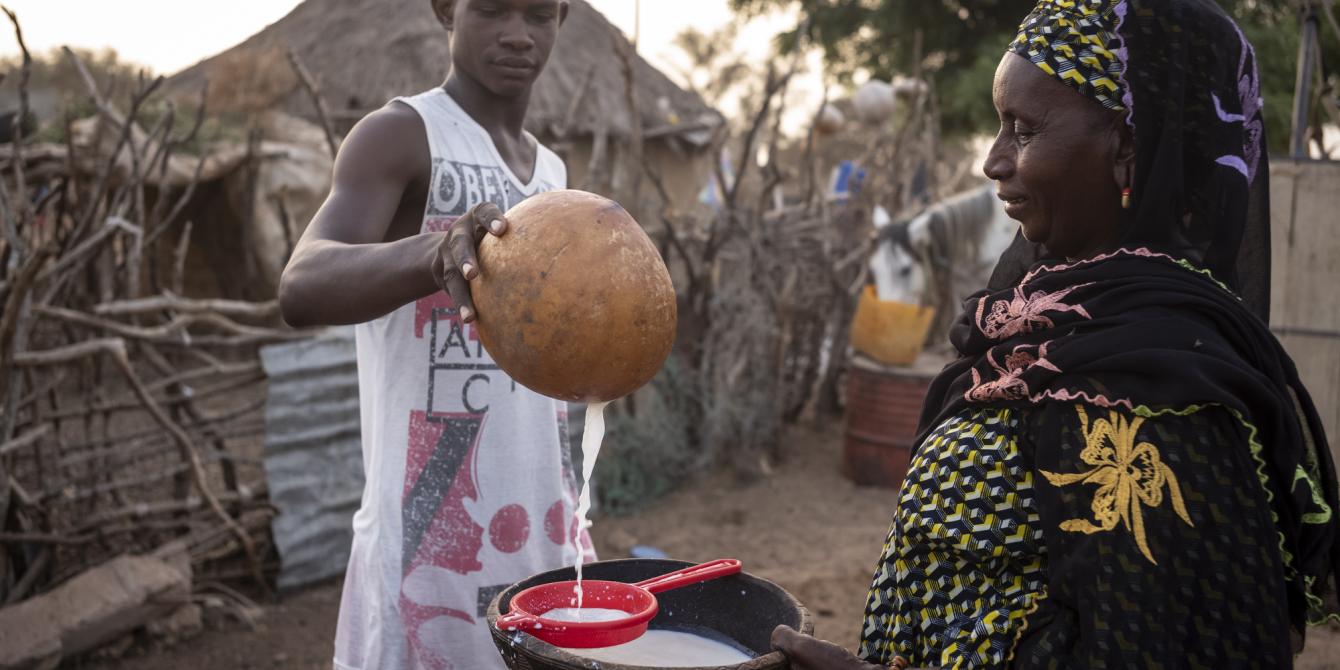
Oxfam supports local milk producers to help them cope with climate change and competition from imported milk powder. Credit: Sylvain Cherkaoui / Oxfam
Oxfam in Mauritania
Oxfam closes in Mauritania
In March 2020, Oxfam’s Executive Board decided to phase out Oxfam activities in 18 countries of the world including Mauritania. This decision was made to adapt to the continuing financial impact of the Covid-19 pandemic. Two years later, Oxfam in Mauritania is phasing out most of its programs in the country.
Legacy of Oxfam in Mauritania
Working in Mauritania since 1983, through its national partners, Oxfam strived to better prepare the population to cope with food crises in growing periods of climate emergency, and promoting respect for the rights of marginalized segments of society, particularly women and youth. In a context marked by climate change and migrations, we stimulated job creation and integration of the most vulnerable people into the labour market.
Tackling climate change and food crises
We contributed to the emergence of communities (women and men, including the poorest) that are more resilient and less vulnerable to food crises by giving them access to sustainable means of production to develop agriculture and livestock farming, as well as other rural productive activities. In this Saharo-Sahelian environment, we prioritized the introduction of innovative techniques adapted to climate change.
We helped farming communities advocate for key actors, including the State, to allocate more resources to productive sectors so that small-scale producers can benefit from the fruits of their labour and make a decent living. We supported the local population through advocacy and influencing work aimed at encouraging decision-makers to respect their various commitments and incorporate climate change into the country's main strategic orientations.
Finally, we provided food assistance to the most vulnerable households and give them access to income-generating activities to facilitate their transition to rebuilding sustainable livelihoods.
Supporting citizens’ participation in good governance
We contributed to strengthening the citizenship of rural populations by helping them claim and exercise their rights to protection/assistance, information, participation, good governance, and accountability vis-à-vis public office holders.
In this way, we facilitated the development of a citizen-influenced movement within which women and youth can advocate for the establishment of a form of land governance that secures the land rights of rural populations, particularly: women’s rights to access and use land; the redistribution of national wealth, especially from extractive industries, as well as between regions, communities, men and women, and in favour of the agriculture sector; and the establishment of a budget to prepare for and respond to crises.

 Follow us on Facebook
Follow us on Facebook Our videos on YouTube
Our videos on YouTube Follow us on Twitter
Follow us on Twitter